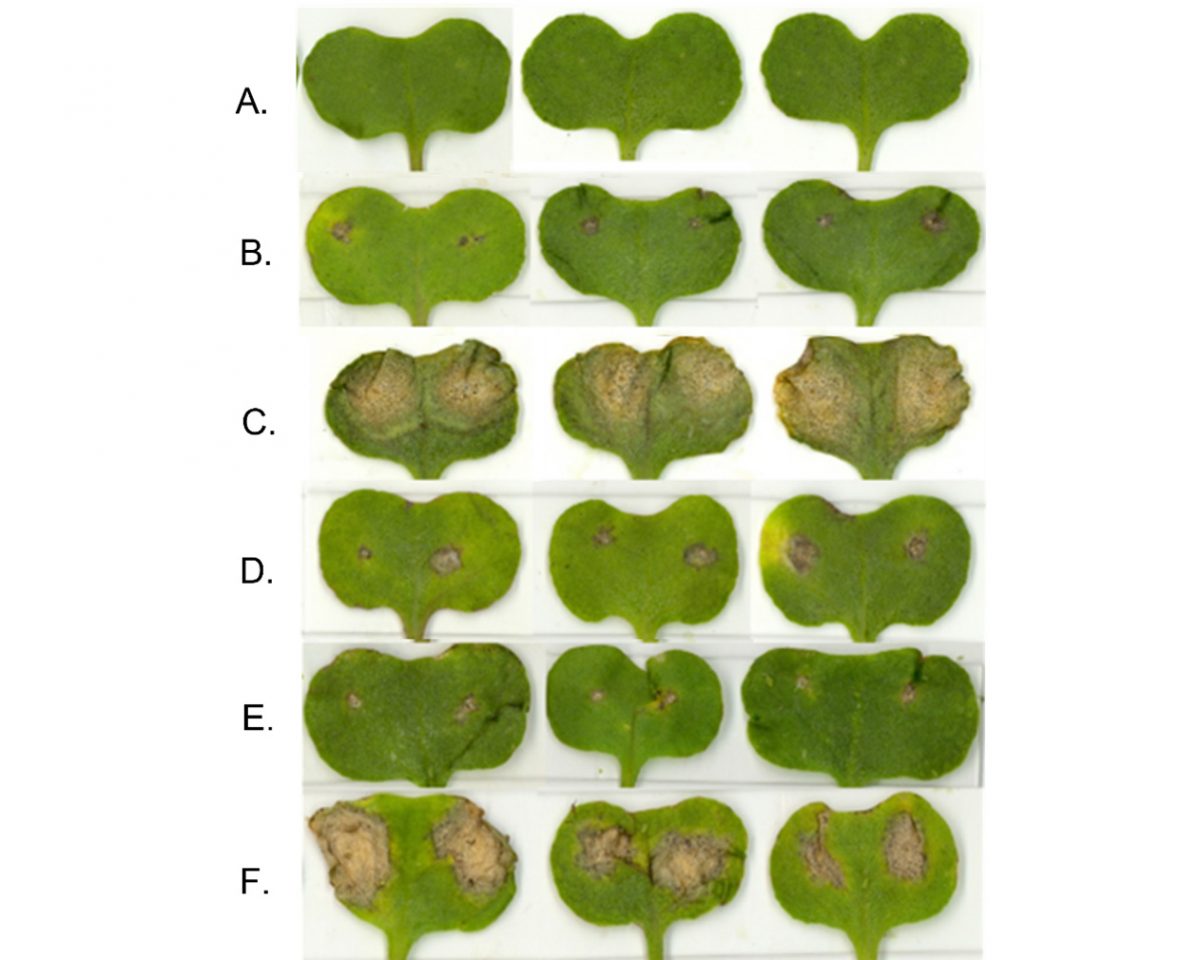
Blackleg disease lesion development in seven-day-old canola cotyledons at 14 days post-inoculation with L. maculans (pathogen) and L. biglobosa (biocontrol agent) inoculations. Photo courtesy of Rasanie Padmathilake.
Top Crop Manager: “Immunizing” canola against blackleg
A promising biological blackleg control mechanism may help farmers mitigate the worst effects of blackleg in canola.
Dilantha Fernando is a professor in the University of Manitoba’s Department of Plant Science and co-author, with Rasanie Padmathilake, on a new paper that shows prior infection by a less virulent pathogen can successfully “immunize” canola against a highly virulent pathogen.
Blackleg is caused by a complex of two species of fungus: Leptosphaeria maculans and Leptosphaeria biglobosa. Until the 1990s, when resistance genes were introduced, the disease caused massive economic losses in Western Canada. Farmers now deploy a system of resistance gene rotation to manage blackleg. But over the last several years, disease incidence levels have been increasing.
In the near future, new controls will be necessary, says Fernando–and biological control techniques like this show promise.






